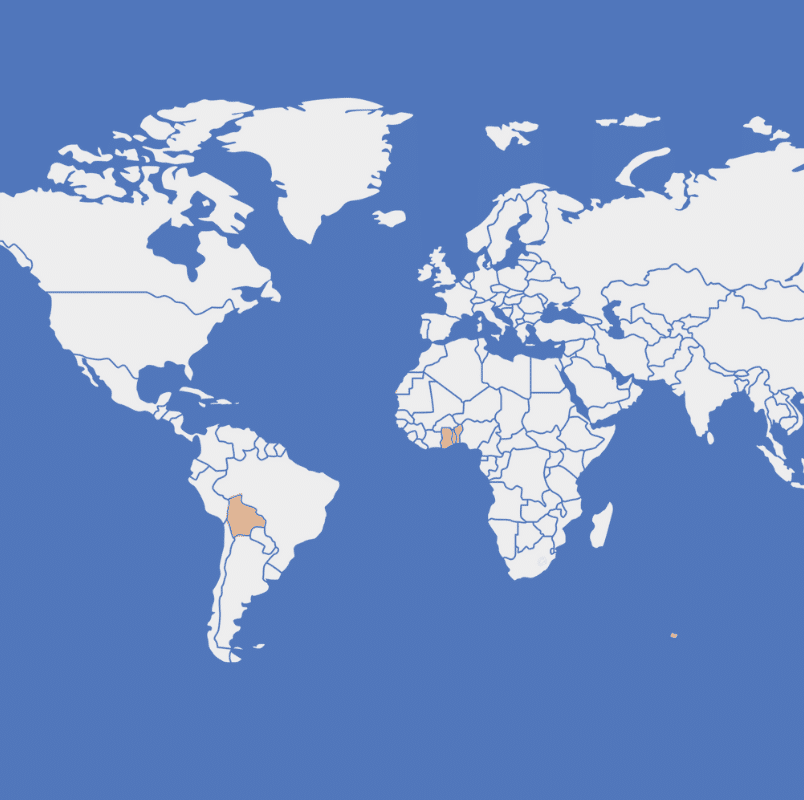
“Catalysts for Change: Voices from TAP-EDM Partnerships” Series
Explore how short-term technical assistance through the TAP-EDM initiative has empowered the Government of Suriname Ministry of Spatial Planning and Environment, to strengthen capacities, and spark meaningful change. In this new series, project partners reflect on how targeted expertise supported their efforts. The TAP Program is undertaken with the financial support of the Government of Canada provided through Global Affairs Canada and implemented by Alinea International.
Background
In Suriname, 87% of the population as well as the majority of economic activity is situated within coastal areas1, leaving the country highly vulnerable to the effects of climate change. Erosion, flooding and sea level rise are some of the many climate challenges that Suriname faces. Responding to these threats, the Ministry of Spatial Planning and Environment (MSPE) is leading national efforts in climate-resilient infrastructure planning, designing, and building. In 2023, the TAP-EDM project collaborated with the MSPE as well as Canadian experts from the Climate Risk Institute (CRI) to deliver targeted training on climate change, infrastructure and climate resilient coastal management to technical staff, policy advisors, decision-makers, and community members.
The TAP initiative in Suriname supported national efforts to adapt to climate change while also nurturing the passion of local citizens committed to protecting their communities and the environment. One such advocate is Romano Jalimsingh, whose drive to safeguard Suriname’s coasts reflects a broader movement of engaged individuals stepping up for climate resilience. We spoke to Romano, the executive director of a social enterprise in Suriname, and asked him to share his story.
Romano Jalimsingh’s Story
Romano was invited to take part in two courses that were developed by Canadian experts from the CRI: Fundamentals in Climate Change and Infrastructure, and Infrastructure, Vulnerability and Risk Assessment. Romano explained that he really valued the inter-disciplinary nature of the trainings workshops as it brought together diverse actors and perspectives working in the climate change sector in Suriname. He also noted that this was his first opportunity to participate in this type of training:
“I had not participated in anything specifically focused on climate change and how it impacts infrastructure before. It was very enlightening, and it broadened my knowledge. It definitely helped me in terms of working with coastal communities.”
Romano currently leads a social enterprise called Night Owl Projects. It is a hybrid organization that includes a small consultancy firm as well as an NGO. Night Owl Projects takes on for-profit projects while also putting aside funds for the NGO-side of the enterprise, which supports social and environmental initiatives. One such initiative is working with an indigenous community in Galibi on climate change adaptation and resilience. This community is facing significant impacts from climate change, particularly coastal erosion which is also affecting the sea turtle population. In fact, over the last 50 years many kilometres of land have been washed away due to erosion.
When Romano began working in Galibi, he decided to use some of the information that he learned through the TAP-EDM supported courses. Romano used specific content from the trainings, such as case studies, and he adapted and translated this content so he could further share the knowledge he gained with local indigenous communities on the ground.
As a result of that knowledge, Romano has noticed that since he has been working in Galibi, the community has planted a lot more coconut trees on the beaches to try to prevent or at least reduce the pace of erosion. When asked why this story was significant to him, Romano explained “It is super low tech, just planting trees but this was very intense planting. And if you look at any initiatives from the locals themselves this is huge progress in my opinion. For them to realize that ok, this is happening to our beaches and its going to affect our settlement. They are trying to learn more about climate change in terms of the science behind it and see how they can effectively address the issue.” Romano is continuing to work with this community in Galibi. He thinks that in the long run, this work will help the community to be more involved in protecting their shoreline and more engaged in understanding the science behind climate change. He hopes that this will lead to initiating more effective interventions to protect the coast of Suriname and the communities that live there.
Conclusion
The content provided by the TAP-EDM capacity development efforts has contributed to the change that we see in this coastal community. By providing Romano with this knowledge, he was able to share it more broadly to raise awareness and understanding with those that face the impacts of climate change on the ground on a daily basis. And by planting coconut trees to prevent erosion, this community is taking a small but important step towards fighting for coastal protection.
